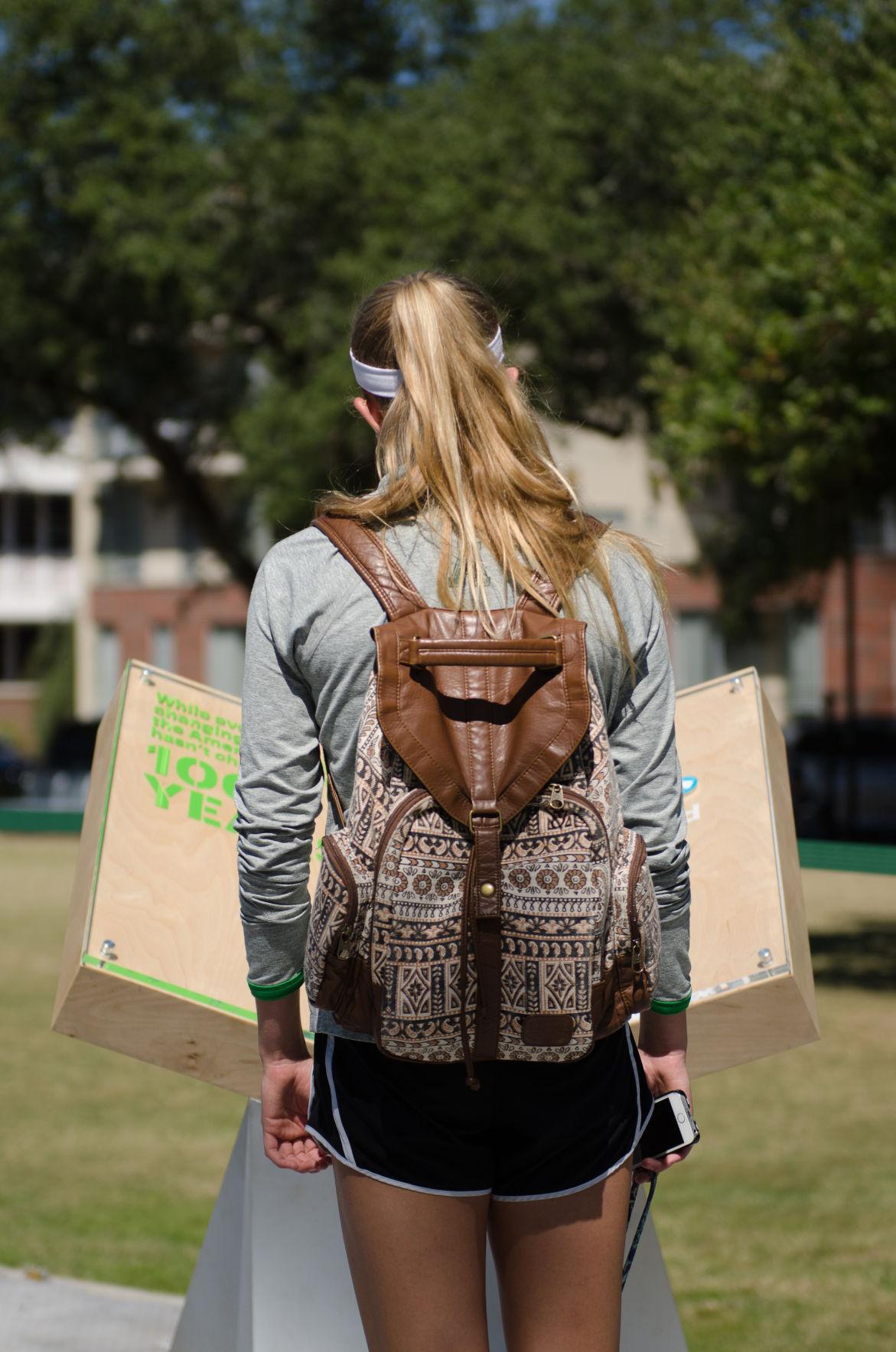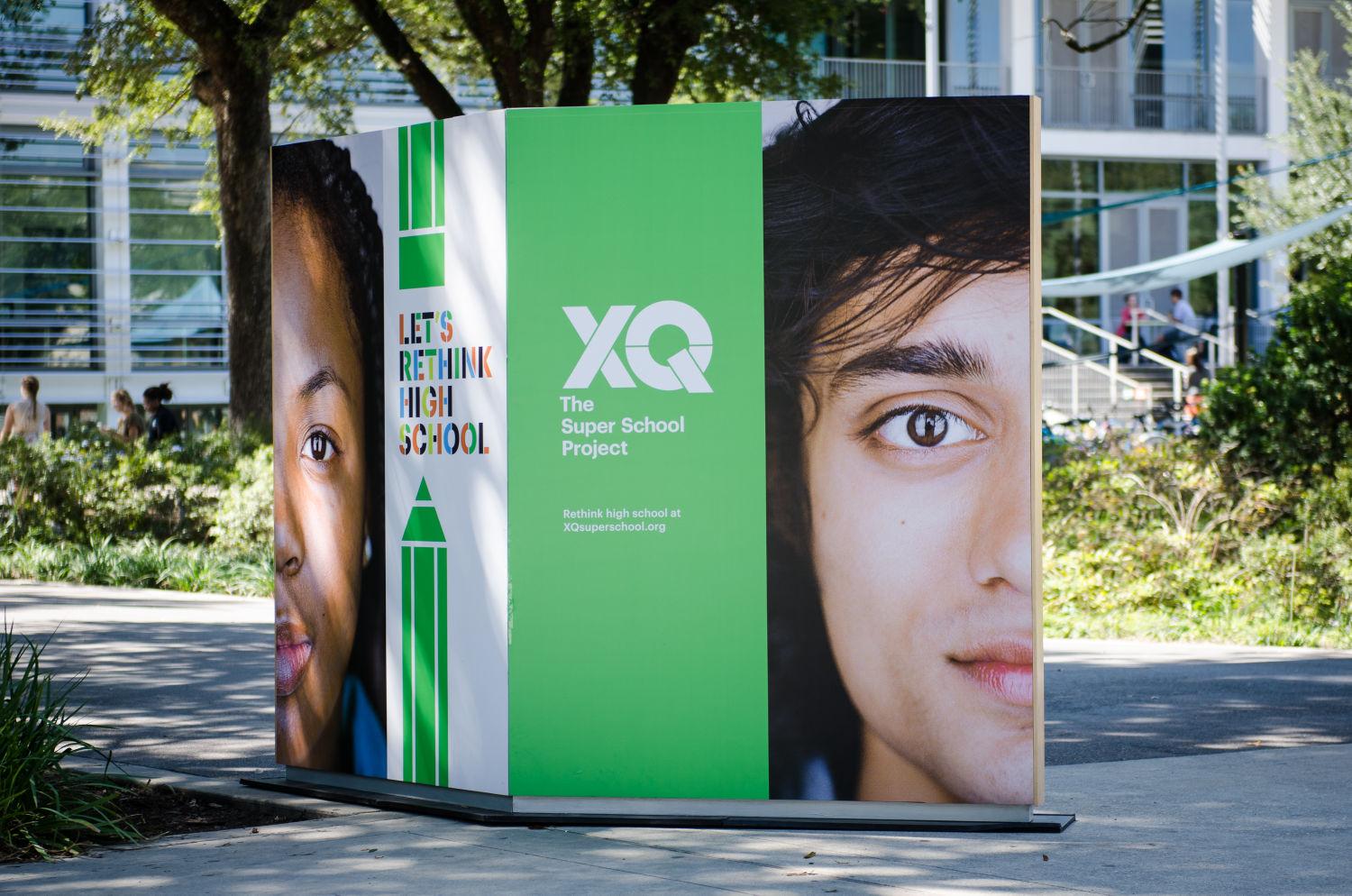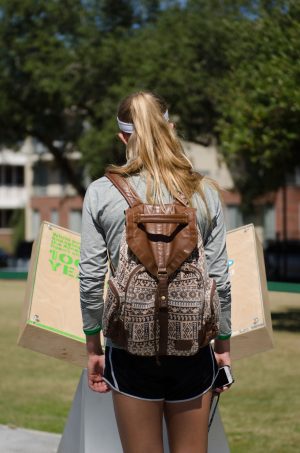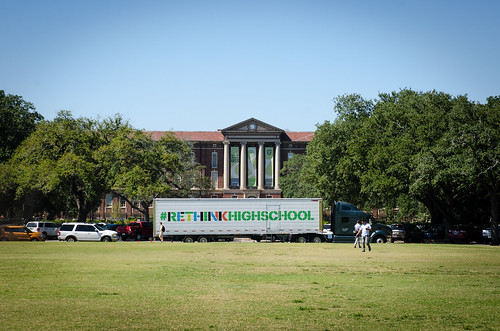McAlister exhibit seeks education revolution
XQ: Super School Project is aiming to invite America to “rethink” something that has not been reevaluated in over a century: high school.
On Oct. 12 and 13, XQ: The Super School Project made Tulane the third stop on its national road show as it works to inspire Americans to completely and utterly “rethink high school.” The show included an interactive exhibit on McAlister Drive that featured statistics about education and a large mobile sound booth in which anybody could record their ideas on how they would change high school, whatever those ideas may be.
“We are legitimately just asking people to radically change and shift their perspectives on public high school in the U.S.,” Marlene Castro, manager of student and community relations for XQ, said.
America has been an international leader in many areas, from technology to the economy, but has allowed itself to stagnate in education. XQ, a nonprofit backed by Lauren Powell Job’s Emerson Collective, wants to reinvigorate American spirit of innovation within its own education system with The Super School Project.
According to XQ, the model that currently exists for public high school education was structured to fit an industrializing economy. Now, 100 years later, history and technology have drastically changed the job industry, but the high school structure remains the same.
The project’s ultimate goal is to encourage people around the country to form teams and create real and sustainable models for a new high school, five or more of which the project will fund with a budget of $50 million dollars.
“What we want to do is let communities know we are here and ready to support them to create actual high schools that are going to prepare students more for like the rigorous challenges of college and applying to college and future career ambitions that they have,” Castro said.
XQ: The Super School Project has several stops throughout the country on its tour to gather ideas and encourage conversation. Tulane is only one of two college campus stops, the other being MIT.
“We came to Tulane because we have a passion for wanting to not just collect student voices but actually mobilize them,” Castro said. “College students can totally reflect on how their high schools served them, and how maybe they could have done a better job.”
Photo by Augusta Sagnelli
Castro began her work with XQ after being an educator both for fifth grade and for high school seniors transitioning into college. While working with first-generation college students, and students from low-income and historically disadvantaged backgrounds, Castro was discouraged by what she saw as fundamental flaws in the system that fostered student disengagement.
“[These students] didn’t feel supported in school,” Castro said. “They didn’t feel like they could actualize something for their futures. School seemed more like a chore and something to go to rather than actually learning and benefitting in some way from the system.”
In order to change the structure of high schools and actually implement new models, XQ is seeking input from anyone who has something to say. And since almost everyone has experienced high school in some capacity, XQ believes that everyone’s thoughts are of value. In addition to their interactive display, people can contribute their ideas through social media and The Super School Project’s website.
“This is a pretty broad issue and a lot of people can come in with their ideas and tackle it from different directions,” sophomore Chase Schober said, after making his own video in the interactive exhibit.
The spirit of innovation that XQ helps catalyze, especially in regard to education, is something Tulane and the New Orleans community hold as essential to their core.
“Improving secondary education is crucial to the future of our country,” President Michael Fitts, who was one of the sponsors of XQ’s show on campus, said in a statement. “XQ: The Super School Project is an innovative effort that jibes perfectly with Tulane’s mission to find new, exciting and effective ways to educate students in the 21st century.”
Since Hurricane Katrina, New Orleans has been home to dramatic changes in education. And while it has not completely abandoned the traditional high school model, New Orleans has reconsidered the public school system on a large scale.
According to the Cowen Institute, New Orleans had one of the lowest performing public school systems in the country prior to Hurricane Katrina. After the hurricane hit, New Orleans restructured its education system, allowing charter schools to replace public schools, running independently and autonomously from a centralized bureaucracy, with goals to improve academic achievement. Now, 93 percent of New Orleans public school students are enrolled in charter schools, the highest rate of charter school enrollment in the country.
In addition to its exhibit on McAlister, The Super School Project hosted a student roundtable, as well as a dinner with President Fitts and other players in local education.
“When I think about what we’re trying to do, I think it’s time to have that national conversation,” Castro said. “Ultimately, it’s just about breaking this box that they feel like high school is like”
Your donation will support the student journalists of Tulane University. Your contribution will allow us to purchase equipment and cover our annual website hosting costs.







